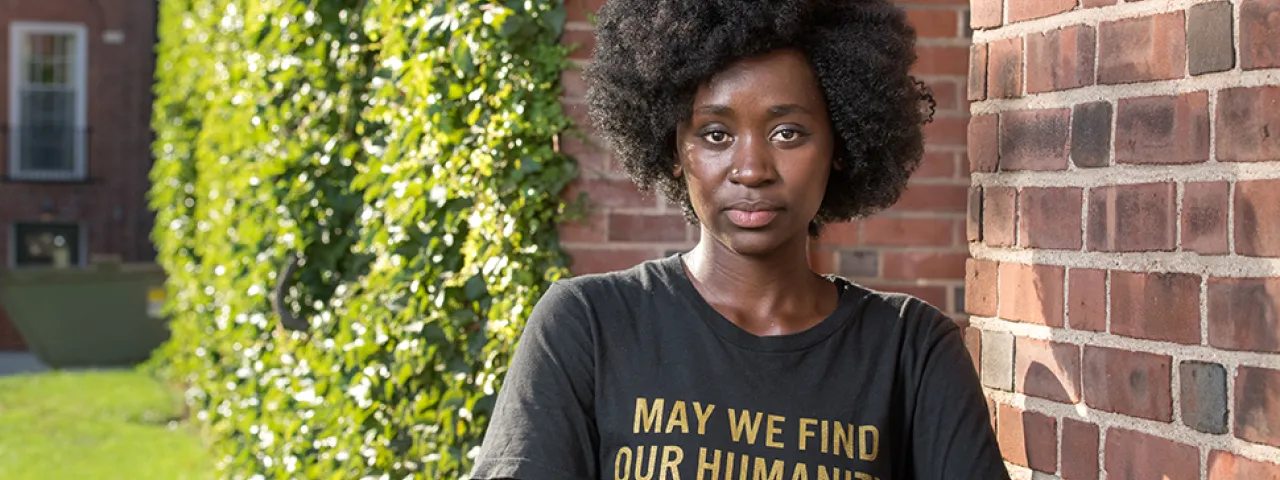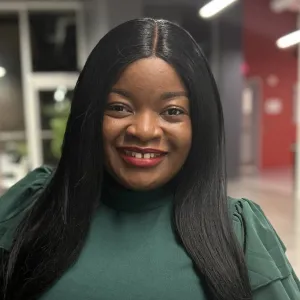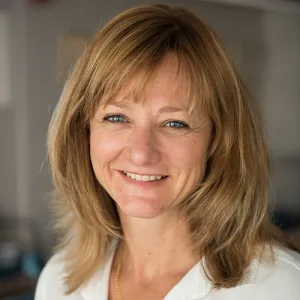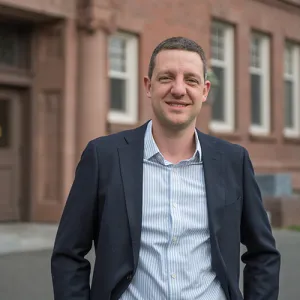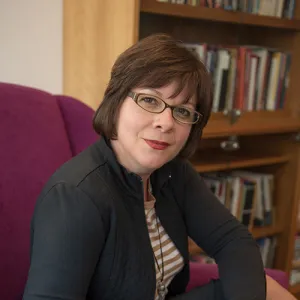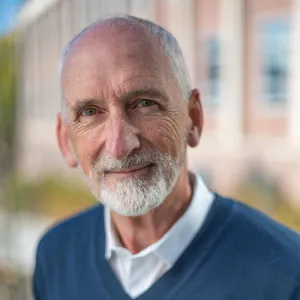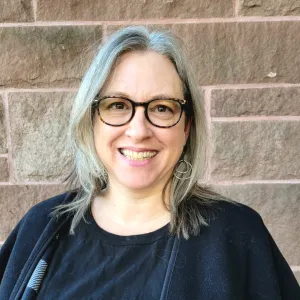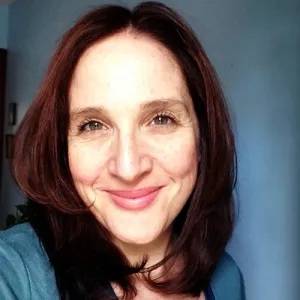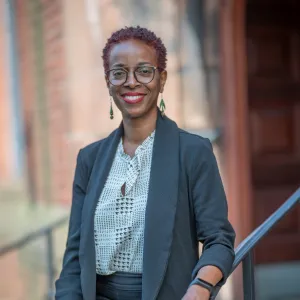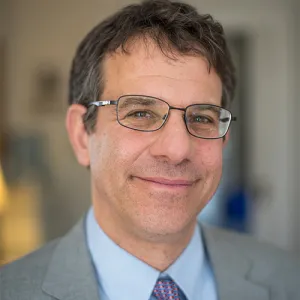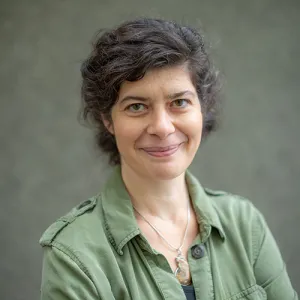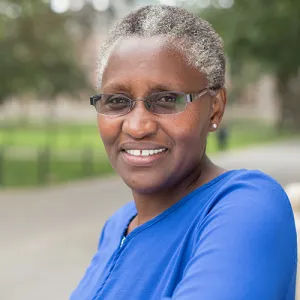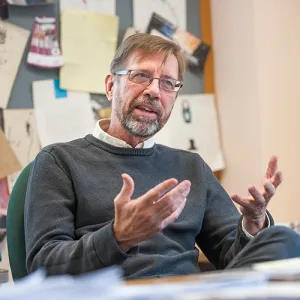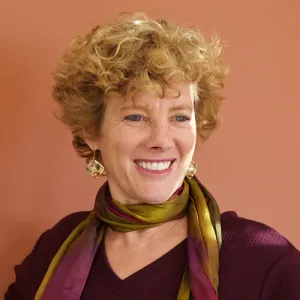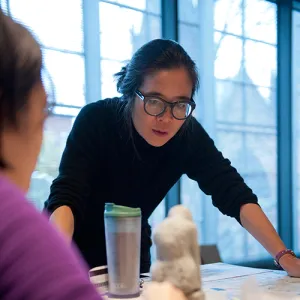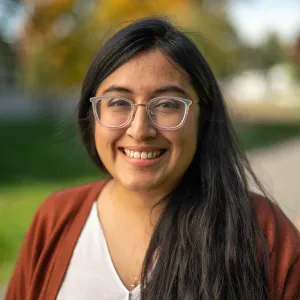Community Engagement & Social Change Concentration
The Community Engagement and Social Change Concentration (CCX) connects community work with academic life by supporting students to embed community work directly into their curricular studies. The Jandon Center for Community Engagement is the organizational hub for the CCX.
You will draw on the rich course offerings from all of the Five Colleges, as well as from the breadth of resources and expertise of the Smith Jandon Center for Community Engagement to define a focus of study related to forging equitable systems and structures. You will expand and deepen your understanding of local, national and global issues affecting communities. You will develop the skills, awareness and knowledge essential to engaging mindfully and effectively with communities. Examples of students’ areas of interest have included immigration and citizenship, public health, education, law and social policy, community organizing, community design and built environments, grassroots narratives and environmental justice.
Requirements & Courses
Learning Goals
The community engagement and social change concentration (henceforth CCX concentration or concentration) has been in existence since its initial formal proposal in summer 2011. The concentration has two broad goals for students:
-
Expand and deepen their understanding of local, national, and global issues that affect communities, and
-
Develop the skills, attitudes, and knowledge necessary to collaborate mindfully with these communities as citizens and leaders.
The concentration seeks to achieve these goals by allowing each participating student to connect an interdisciplinary area of special interest to practical work in off-campus communities. By combining carefully selected coursework, practical experiences in communities, and guided reflection, students are expected to:
-
Develop an in-depth understanding of an interdisciplinary area of interest by integrating coursework and experiential learning
-
Understand how organizations and institutions are structured and function in society
-
Understand interrelationships among structural social inequalities affecting local and global communities
-
Understand the relevance and connection of theoretical knowledge to social issues
-
Use specific theoretical lenses to understand how social change happens (historical, sociological, anthropological, feminist, etc.)
-
Develop an understanding of different forms of community engagement/active citizenship
-
Participate in two or more extended practical experiences that allow for significant engagement with host organizations and communities
-
Gain necessary skills for interacting, learning, and researching with communities in an ethical and collaborative manner
-
Use appropriate “languages” to communicate (speak/listen/write/perform) effectively with different audiences, including traditionally marginalized community groups
-
Reflect on community-based practical experiences in terms of personal growth, skills learned, and career exploration.
Courses
Students are strongly encouraged to have taken CCX 120, Community Based Learning: Ethics and Practice (required for the concentration) before they apply.
CCX 120 Community-Based Learning: Ethics and Practice (2 Credits)
Service learning, civic engagement, community-based participatory research and community service are familiar terms for describing forms of community-based learning (CBL) in higher education. Theorists and practitioners continue to debate how students and faculty can best join partners to support community-driven goals in areas nearby colleges and universities. Students consider these issues through exploring the literature of community engagement and learning from the experiences of those who practice its different forms. CCX 120 serves as a gateway course for the Community Engagement and Social Change Concentration. Students are introduced to the varied opportunities available at the college for engaging with communities. S/U only.
Fall
CCX 245/ SWG 245 Colloquium: Collective Organizing (4 Credits)
Offered as SWG 245 and CCX 245. This course introduces students to key concepts, debates and provocations that animate the world of community, labor and electoral organizing for social change. To better understand these movements’ visions, students develop an analysis of global and national inequalities, exploitation and oppression. The course explores a range of organizing skills to build an awareness of power dynamics and learn activists’ tools to bring people together towards common goals. A central aspect of this course is practicing community-based learning and research methods in dialogue with community-based activist partners. Prerequisite: CCX 120 or SWG 150. Enrollment limited to 18. {H}{S}
Fall
CCX 320 Capstone Seminar for the Community Engagement and Social Change Concentration (4 Credits)
This course provides a forum for Community Engagement and Social Change concentration students to develop research projects that synthesize their prior coursework and practical experiences. In a typical capstone project, student teams complete a collaborative project focused on imagining concrete ways out of current crises by designing and proposing innovative approaches to dismantling structures of inequality or catalyzing structures of equity. Restrictions: Juniors and seniors only. Enrollment limited to 15. Instructor permission required.
Spring
CCX 400 Special Studies (1-4 Credits)
Normally, CCX concentrators only. Instructor permission required.
Fall, Spring
Crosslisted Courses
ARS 205dc Topics: Studio Art Workshops: Decolonizing the Camera (2 Credits)
Throughout this 7-week course, students work towards developing an understanding of decolonization as it pertains to the camera and photographic processes. They spend time with texts that engage the camera and its role in the creation and upholding of systems pertaining to race and power. The readings are supplemented by rigorous experimentation with alternative photographic processes, including, but not limited to cameraless processes such as cyanotypes, solar prints, and anthotypes. This course approaches decolonization through experimentation thus revealing the expansive possibilities held within the image-making process when experimentation and abstraction are centered. When multiple workshops are offered, students may take different topics during the first and second half of the semester for a total of 4 credits. Up to 4 credits of workshops may count toward the Studio Art Major. No prerequisites. S/U only. Enrollment limited to 12. (E) {A}
Fall, Spring, Variable
ARS 205sb Topics: Studio Art Workshops-Sites of Belonging: Materials, Making, Place (2 Credits)
This course is inspired by the vein of artistic practice that mines sites of belonging as starting points for making artwork. Sites of belonging are considered in an expansive sense, as physical locations but also spaces of created community and individual agency -- birthplaces, families born into or chosen, neighborhoods (actual and metaphorical) of connection. The course explores how characteristics of these sites, physical markers, rhythms of making, and memory directly or adjacently express these sites through the beautiful language of materials and tactility. S/U only. Enrollment limited to 12. (E) {A}
Fall, Spring, Variable
ARS 205sj Topics: Studio Art Workshops: Drawing Social Justice (2 Credits)
This 7-week studio intensive engages topics of social justice as central to the discussion and visual inquiry. Through studio work, artist research, class excursions, and short readings, students use drawing as an expansive medium to conceptualize and relate their ideas. This course is experimental in nature and has no defined emphasis on traditional drawing techniques, instead the course takes an expanded/interdisciplinary media approach to drawing, to explore how critical questions of social justice can be developed into impactful artworks. Studio Art Workshops allow students with any level of experience to explore a thematic, expanded approach to art practice. When multiple workshops are offered, students may take different topics during the first and second half of the semester for a total of 4 credits. Up to 4 credits of workshops may count toward the Studio Art Major. No prerequisites. Majors and non-majors welcome. S/U only. Enrollment limited to 12. {A}
Fall, Spring, Variable
CCX 245/ SWG 245 Colloquium: Collective Organizing (4 Credits)
Offered as SWG 245 and CCX 245. This course introduces students to key concepts, debates and provocations that animate the world of community, labor and electoral organizing for social change. To better understand these movements’ visions, students develop an analysis of global and national inequalities, exploitation and oppression. The course explores a range of organizing skills to build an awareness of power dynamics and learn activists’ tools to bring people together towards common goals. A central aspect of this course is practicing community-based learning and research methods in dialogue with community-based activist partners. Prerequisite: CCX 120 or SWG 150. Enrollment limited to 18. {H}{S}
Fall
GOV 240 NGOs in World Politics (4 Credits)
Since the end of the Second World War, there has been an enormous growth in the number of NGOs active globally, some working across borders on issues as diverse as poverty, health, women’s rights and emergency relief. Both international and national NGOs have taken on new roles in areas once considered the government domain. This course elaborates on how NGOs became crucial actors in world politics. The course explores the definition and purpose of NGOs and their history, looks at case studies of NGOs worldwide and considers the critique of NGOs. Enrollment limited to 40. (E) {S}
Fall, Spring, Variable
GOV 249 International Human Rights (4 Credits)
This course examines international human rights and the legal regime designed to protect them. Beginning with a theoretical inquiry into the justification of human rights, the course moves into an analysis of the contemporary system, from the UN to regional associations to NGOs. With that background in place, the course turns to specific topics, including the rights of vulnerable persons (women, children, minority communities, internally and externally displaced persons); human rights concerns arising from globalization and corporate responsibility; environmental concerns; and issues of peacekeeping. It concludes by examining enforcement strategies, from humanitarian intervention to political mobilization to judicial enforcement of rights in both domestic and international tribunals. Designation: International Relations. {S}
Fall, Spring, Alternate Years
POR 302 Colloquium: Theatre of the Oppressed In and Beyond Brazil: Introduction to Theory and Practice (4 Credits)
This course introduces students to the theory and practice of the Theatre of the Oppressed (T.O.), conceived by Augusto Boal and inspired by Paulo Freire’s Pedagogy of the Oppressed. The class discusses how Boal’s method promotes dialogue as an effective communication tool; when dialogue becomes monologue, oppression begins. The course includes the work of director, performer, and writer Barbara Santos and her feminist perspective of the T.O. In addition to learning about T.O. games, techniques, methodologies, and practical applications, students explore other aspects of Brazilian culture including Capoeira, Afro-Brazilian religions, music, and culinary arts, as they relate to human rights, social equity, the environment, and political power. All course content is in English, with texts in the original language for students who read Portuguese. Enrollment limited to 25. {L}{S}
Fall, Spring, Variable
PSY 363 Research Seminar: Adolescent Sociopolitical Development (4 Credits)
This research seminar introduces undergraduates to the field of sociopolitical development, which explores how adolescents build the motivation and skills to engage in political and social systems with the goal of fighting inequality and resisting oppression. Students learn the basics of qualitative inquiry and apply these skills to questions of civic development and empowerment in late adolescence/young adulthood. May be repeated. Cannot be taken S/U. Prerequisites: PSY 100 and PSY 202. Additional coursework in developmental psychology is highly recommended. Restrictions: Juniors and seniors only. Enrollment limited to 12. Instructor permission required. {N}{S}
Spring
PSY 366 Seminar: Psychology, Intervention, and Social Change (4 Credits)
This course examines both the psychological processes driving social change and prevention, and intervention strategies to promote social change. The course approaches social issues and social change from a psychological lens and explores strategies for intervention. Students engage with examples of interventions in areas of education, intergroup relations, and youth development. Previous coursework in education, developmental psychology, or social psychology is recommended. Prerequisites: PSY 100 and PSY 202. Restrictions: Juniors and seniors only. Enrollment limited to 12. Instructor permission required. {S}
Fall
SWG 150 Introduction to the Study of Women, Gender and Sexuality (4 Credits)
This course is an introduction to the interdisciplinary field of women’s, gender and sexuality studies. Students learn key concepts and theories of the field by analyzing the social construction of sex, gender and sexuality as they intersect with race, class, nationality and (dis)ability at the individual, institutional and ideological levels, and in national and global contexts. The course examines the historical roots of feminist movements and thinking, and engages with contemporary movements for social justice. Texts include archival materials, films, personal narratives, theory, scholarly works, poetry, fiction, art, and popular writing and culture. Students learn interdisciplinary methodologies of archival research, historical analysis, literary and visual analysis, and theoretical analysis. Primarily for first- and second-year students. Enrollment limited to 25. {H}{S}
Fall, Spring
SWG 238 Women, Money and Transnational Social Movements (4 Credits)
Flickers of global finance capital across computer screens cannot compare to the travel preparations of women migrating from rural homes to work at computer chip factories. Yet both movements, of capital and people, constitute vital facets of globalization in the current era. This course centers on the political linkages and economic theories that address the politics of women, gender relations and capitalism. Students research social movements that challenge the raced, classed and gendered inequities, and the costs of maintaining order. The course assesses the alternatives proposed by social movements like the landless workers movement (MST) in Brazil, and economic shifts like the workers cooperative movement. Assignments include community-based research on local and global political movements, short papers, class-led discussions & written reflections. {S}
Spring
SWG 246 Colloquium: Agitating, Cultivating, and Performing for Justice (4 Credits)
This course focuses on ongoing struggles, transnationally, to make knowledges for sociopolitical, ecological, and epistemic justice across geographical and institutional boundaries. It brings into conversation themes such as: land, rivers, crops; history, haunting, memory; bodies, dreams, agitations; and poetry, protest, hope. Students grapple with a range of texts, labors, and cocreations that seek to advance sociopolitical, ecological, and climate justice with a planetary consciousness. The course explores ways of coming together across diverse sites to generate transformative practices of unlearning, relearning, creating, and be(com)ing to struggle for a just world, and to find joy and momentum in that struggle. Prerequisite: SWG 150. Enrollment limited to 18. {A}{S}
Fall, Spring, Annually
SWG 250 Colloquium: Remembering, Mourning, & (Re)writing Wars (4 Credits)
Why do changemakers find it critical to remember, mourn, and (re)write wars, partitions, and historical trauma? How do they mobilize this work to build alternative futures? This course centers a wide range of texts, with an eye toward opening up the meanings of war, remembering, mourning, writing, performing, and reimagining. As well, these texts offer dreams and languages of justice and liberation that defy pregiven separations among the intellectual, political, psychic, and spiritual. The course examines how these narrations and visions are contoured by temporal and spatial specificities of caste, race, gender, sexuality, religion, language, queerness, diaspora, and colonialism. Prerequisite: SWG 150. Enrollment limited to 18. {A}{L}{S}
Fall, Spring, Annually
SWG 300wk Seminar: Topics in the Study of Women and Gender-Feminist Ways of Knowing (4 Credits)
This course explores feminist learning as an endless movement by centering the praxis, politics and poetics of collective knowledge production. How do one know what one knows? Who and what are served by that knowledge? How might a commitment to anti-coloniality and justice push one to imagine, make and move differently in relation to structures of violence that one seeks to transform? Students dive into these questions by engaging with over 25 years of organizing and co-creativity inspired by the Sangtin movement and Parakh Theater in India, and they make connections with these through embodied activities in the classroom. Prerequisite: SWG 150. Restrictions: Juniors and seniors only. Enrollment limited to 12. Instructor permission required. {A}{S}
Fall, Spring, Variable
Community Engagement and Social Change Concentration
Requirements
Twenty-two credits
- The gateway course CCX 120 (2 credits)
- Four electives (16 credits) in relevant core content, derived from four different disciplines and chosen in consultation with the concentration adviser:
- Two community-based learning (CBL) courses
- Two additional electives
- Two practical experiences with an off-campus community organization
- One experience of at least 100 hours
- One experience of at least 200 hours
- One reflection session each semester
- The capstone seminar CCX 320 (4 credits)
Concentration Requirement Details
- The most recent list of past and potential CBL courses is available by emailing the Jandon Center.
- Electives support the student's area of interest and deepen their knowledge of relevant core content, including social justice, systems analysis, equity and inclusion, community development and community-based learning/research. Examples of areas of interest for electives include immigration and citizenship, public health, education, law and policy, community organizing, community narratives, environmental justice, activist science, social movements, cities and urbanism, regional and local economic development, and arts and activism. Course offerings with this content are available in multiple departments at Smith and in the Five Colleges.
- Practical experiences of longer duration are strongly encouraged. These may include internships, service-learning, community-based participatory research and paid or volunteer community service. They may occur at any time in the calendar year and may be combined with Praxis, off-campus work-study or other stipend programs. The Jandon Center offers practicum opportunities during the academic year.
- Reflection sessions are coordinated by the JCCE and facilitate student learning from practical experiences and allow students to learn from and connect with fellow concentrators.
Additional Programmatic Information
Working with the oversight of a faculty adviser and, as appropriate, a concentration mentor from the Jandon staff, you will chart a pathway that combines interdisciplinary course work with practical work in communities. Concentration mentors have broad expertise on community engagement and institutional memory of how previous concentrators met CCX objectives. Faculty advisers have content expertise that will help students realize their specific interests within the CCX framework. Depending on your interdisciplinary focus, you are encouraged to link your work to the considerable resources of the college's other centers and School for Social Work.
Students will complete two different practical experiences to fulfill the requirements for the concentration. One experience will consist of at least 100 documented hours of work with a community partner. The other experience will be at least 200 hours. When possible, experiences of longer duration are strongly encouraged.
Practical experiences may include internships, service-learning, community-based participatory research, and paid or volunteer community service. They may occur at any time in the calendar year: during the academic semester, interterm, spring break or summer. They may be combined with Praxis, off-campus work-study or other stipend programs.
At least one practical experience must be explicitly related to your area of interest for the concentration.
The two practical experiences must differ in terms of host organization and tasks performed.
Prior approval must be obtained from your concentration adviser, and both student learning goals and community outcomes of substantial benefit to the community partner must be demonstrated.
Documenting Your Experiences
You are encouraged to maintain a journal during your practical experiences (at least one entry per week is recommended) and to keep examples of your work and materials you produce.The Practical Experience Documentation Form and the Supervisor Evaluation Form must be submitted to the Jandon Center within a semester of completing your practical experience in order to be counted toward your concentration.
Retroactive Approval for Practical Experiences
If you have already completed one or more practical experiences (internships, service-learning, community-based participatory research, paid or volunteer community service) before entering the Community Engagement and Social Change Concentration program, you are still eligible to receive credit for these experiences.
You will need to document your experience as follows. These materials should be compiled and discussed with your concentration adviser for your practical experience to be counted toward a CESC Concentration.
1. Complete the Practical Experience Documentation Form retroactively with your concentration adviser.
2. Provide documentation of your experience (electronic versions or hard copies) that may include:
- Examples of work or materials you produced
- Relevant photographs
3. Write a reflection paper (minimum of two pages) that addresses the following questions:
- What did the experience confirm or illuminate about your future academic and/or career goals?
- How did your experience relate to your prior academic work?
- What insights did you gain about yourself and your preferred working style?
- What aspects of your experience were most valuable?
- What were your main duties and accomplishments during your internship, service-learning, community-based participatory research, or paid or volunteer community service experience?
Additional Course Information
Students will take four courses that support their area of interest. Examples of areas of interest include immigration and citizenship, public health, education, law and policy, community organizing, community narratives, environmental justice, social movements, and arts and activism. Electives deepen students’ knowledge in relevant core content, including social justice, systems analysis, equity and inclusion, community development and community-based learning/research. Course offerings with this content are available in multiple departments at Smith and in the Five Colleges. Electives must be derived from multiple disciplines, and two of the electives must be community-based learning (CBL) courses.
Advisory Committee
Forms
Declaration of Concentration
Students who have been accepted into the concentration and received their adviser’s name need to fill out the Program of Study Declaration Form.
This is the last step in making the concentration official in Workday.
Practical Experience Forms
After discussing the proposed practical experience with their advisers, students need to fill out the corresponding practical experience approval form in order to have the experience count towards the concentration requirements:
- Summer Internship (100 hours or more): Internship Credit Application
All students undertaking a summer internship of at least 100 hours are eligible to receive academic credit (0.25 credits per experience) that will appear on their transcript. We encourage all students who qualify to apply for internship credit. Students applying for Praxis funding don’t need to fill out this form, and should instead use the “Praxis with Credit” form below. - Unpaid Summer Internship (220 hours or more): Praxis with Credit Application
All Smith students are eligible to receive a stipend payment for one normally unpaid internship through the Praxis program at the Lazarus Center. These internships must take place during the summer, and must comprise at least 220 working hours. Students in Concentrations are eligible to apply for Praxis a second time–Praxis Plus. When applying for a Praxis internship, the applicant must specify if the internship counts towards a concentration and should fill out the “Praxis with Credit” application. - Other Internships and Practical Experiences
Students whose internships do not meet the above requirements because they take place during Interterm, during the school year, or for any other reason, should fill out the following forms.
Prior to starting the internship please fill out the Practical Experience Approval Form.
Upon completion of the practical experience please fill out the Practical Experience Completion Form. - Retroactive Credit for an Experience
Students who completed a practical experience relevant to the concentration prior to being accepted into the cohort should discuss the experience with their concentration adviser as soon as possible. Once the experience is approved, students must fill out the Practical Experience Completion Form and check the “Retroactive Experience” box on the form.
Wondering what you can contribute with a Community Engagement & Social Change concentration? Check out the concentration on Smith ScholarWorks.
Meet with Us
Application
Next application deadline is October 17, 2025
Applications will be reviewed by the advisory board at the end of March to determine the feasibility of the proposed course of study in the CCX Concentration along with your intended or declared major. Accepted students will be assigned to an adviser who will oversee your progress through the program and approve internships.
Contact Jandon Center for Community Engagement
Smith College
Wright Hall
Northampton, MA 01060
Phone: 413-585-3060 Email: jcce@smith.edu
